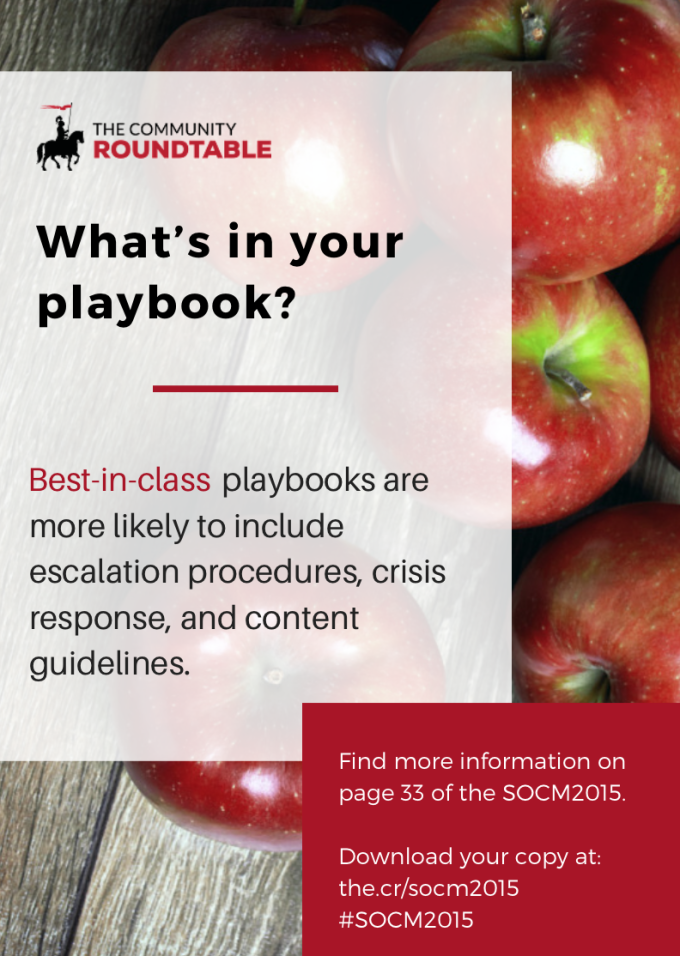By Ted McEnroe, Head of Research, The Community Roundtable
If you’ve played team sports for any period of time, you’ve probably had the need to learn plays – and with good reason. No matter how strong your individual skills, knowing what you and your fellow team members can and should be doing in a given situation gives you a leg up on your competition. Knowing your plans ahead of time means you can focus on executing.
The playbook in a community context isn’t that different. A well-thought out community playbook gives the members of your community team a sense of their options in various scenarios. How do you manage standard problems? How do you hold a consistent tone with your community? How do you handle a crisis situation? These are all critical questions, and you want the answers to be the same for every member of the team. So, it may surprise you to know that the majority of communities in the State of Community Management 2015 survey don’t have playbooks.
Just about a third of communities in the survey had playbooks, and not all playbooks are created equal. While the vast majority of all communities with playbooks were likely to include things like community objectives, metrics and measurement, general instructions and participation guidelines, our group of Best-in-class communities were not only more likely to have playbooks, but to use them to capture and share escalation policies, content management guidelines and crisis response plans.

Does your community need a playbook? Not always, and not immediately. If you’re a lone wolf community manager, you may not have much of an audience for a playbook. And if your community is just starting and still evolving, maybe it’s not yet the right time.
But at some point, a playbook makes perfect sense. TheCR looked at playbook development as part of the State of Community Management 2014 and 2015 research, as well as in the Community Manager Handbook. You can even check out this this post to help you decide whether you need a playbook and how to get started.
